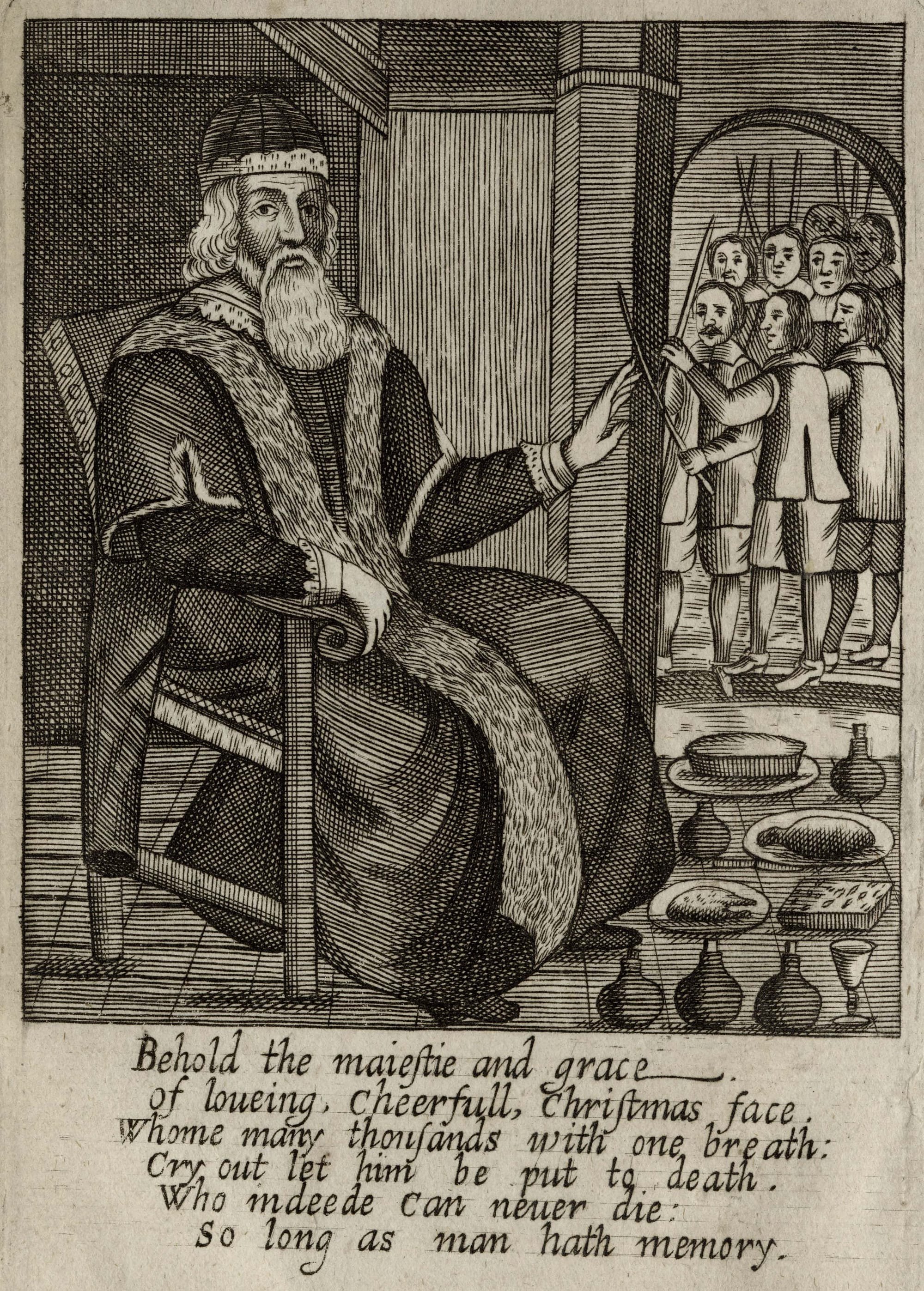Father Christmas

(I’m reposting some older, seasonal articles on the feed’s off days. This article was first published on Wordorigins.org on 16 December 2021.)
Father Christmas is a British personification of Christmas. In centuries prior, there were other personifications of the holiday, but Father Christmas’s name and iconic image arose during the period of the English Civil War (1642–51), when the Puritan-controlled Parliament discouraged the celebration of the holiday. Father Christmas himself began appearing in various anti-Puritan political tracts lamenting the loss of the holiday.
The title first appears in just such a tract, the anonymous 1646 Arraignment, Conviction, and Imprisoning, of Christmas:
Honest Crier, I know thou knewest old Father [C]hristmas; I am sent to thee from an honest schollar of Oxford (that hath given me many a hug and kisst in Christmas time when we have been merry) to cry Christmas, for they hear that he is gone from hence, and that we have lost the poor old man; you know what marks he hath, and how to cry him.
The image shown here is from another such tract, Josiah King’s 1658 The Examination and Tryall of Old Father Christmas. You can begin to see a pattern in the titles.
Nowadays, with Christmas firmly entrenched in our culture and going nowhere, Father Christmas has become conflated with Santa Claus, and the latter has taken elements, such as the fur-lined cap and coat, from the former.
Sources:
The Arraignment, Conviction, and Imprisoning, of Christmas. London: Simon Minc’d Pye for Cissely Plum-Porridge, 1646, 2. Early English Books Online (EEBO).
Oxford English Dictionary, third edition, March 2016, modified September 2021, s.v. father, n.
Image credit: Anonymous artist, 1658. King, Josiah, The Examination and Tryall of Old Father Christmas, London: Charles Brome: 1685. Folger Shakespeare Library. Public domain image.